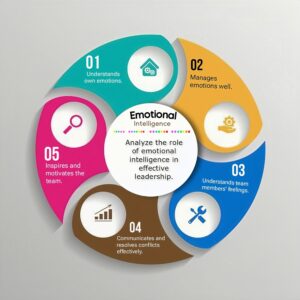ਖੁਸ਼ੀ
BegginerResources & Suggestions
Mains Answer Writing Latest Articles
Daily Answer Writing Practice Questions (18 April 2025)
Do you agree with the claim that indecision and risk aversion are prevalent issues in Indian bureaucracy? Support your answer with logical reasoning. (150 words) ऐसा कहा जाता है कि भारतीय नौकरशाही में अनिर्णय और जोखिम से बचने की प्रवृत्ति ...
Strengthening India’s Cyber Defence
Rising Threats Digital Era Challenges: 2024 marks a significant rise in digital threats, particularly from AI and cyberattacks. Key Issues: Disinformation campaigns. Cyber fraud affecting daily life. Current Major Cyber Threats Ransomware Rampage: Over 48,000 instances of WannaCry ransomware detected ...
भारत की साइबर सुरक्षा
बढ़ते खतरे कृत्रिम बुद्धिमत्ता (AI) और साइबर हमले: 2024 में AI और साइबर हमलों के खतरे में वृद्धि। महत्वपूर्ण अवसंरचना पर हमले: डिजिटल हमलों और दुष्प्रचार अभियानों की संभावना बढ़ी है। प्रमुख साइबर खतरें रैनसमवेयर का प्रकोप: 48,000 से अधिक ...

Analyze the role of emotional intelligence in effective leadership. Provide examples of how leaders can use EI to enhance team performance and morale.

See lessAnalyze the role of emotional intelligence in effective leadership. Provide examples of how leaders can use EI to enhance team performance and morale.
Emotional intelligence (EI) significantly contributes to mental well-being and resilience in several ways: 1. Self Awareness Role- Leaders with high self-awareness understand their emotions and their impact on decisions. Example- Notices stress and avoids hasty decisions. 2. Self ContRead more
Emotional intelligence (EI) significantly contributes to mental well-being and resilience in several ways:
1. Self Awareness
Role- Leaders with high self-awareness understand their emotions and their impact on decisions.
Example- Notices stress and avoids hasty decisions.
2. Self Control
Role- Effective leaders manage their emotions, staying calm under pressure. This composure helps them provide clear direction during crises, maintaining team focus.
Example- Stays calm in crises, providing clear direction.
3. Empathy
Role- Empathetic leaders understand and care about their team’s feelings.
Example- Checking in on a quiet team member and offering support can boost support and engagement.
4. Social Skills
Role- Leaders with strong social skills communicate effectively and resolve conflicts.
Example- Active listening during meetings ensures everyone feels heard, fostering collaboration.
5. Motivation
Role- Highly motivated leaders inspire their teams through their passion and dedication.
Example- Shows enthusiasm, encourages the team to give their best effort.
“Example”
➨ Regular check-ins improve communication and efficiency.
➨ Acknowledging setbacks and focusing on lessons learned and future opportunities uplift team spirits.
➨ Mediating disputes and guiding team members to solutions strengthens team cohesion.
Incorporating EI in leadership promotes a positive work environment and drives better team outcomes.
See lessHow does emotional intelligence contribute to mental well-being and resilience?
1) Self Awareness Knowing your own feelings helps you make better choices and handle stress well. 2. Self control Managing your emotions means you can stay calm and focused, even in tough times. 3. Empathy Understanding others' feelings helps you build strong, supportive relationships. 4. Social skRead more
1) Self Awareness
Knowing your own feelings helps you make better choices and handle stress well.
2. Self control
Managing your emotions means you can stay calm and focused, even in tough times.
3. Empathy
Understanding others’ feelings helps you build strong, supportive relationships.
4. Social skill
Good communication and solving conflicts well keep your relationships healthy.
5. Motivation
Being motivated helps you stay positive and achieve your goals.
6. Adaptability
Being flexible and open to change helps you recover from setbacks more easily.
See lessHow can doctors and healthcare professionals use emotional intelligence to improve patient care, communication, and outcomes, and what specific emotional intelligence skills, such as empathy and effective communication, are essential for building trust and rapport with patients, families, and healthcare teams in high-stress medical environments?
➟ Improving patient care ⤷ Show patients you understand and care about their feelings. ⤷ Pay close attention to what patients say to understand their issues better. ⤷ Stay calm under pressure to make better decisions and keep patients at ease. ⤷ Treat patients with kindness and genuine concern.Read more
➟ Improving patient care
⤷ Show patients you understand and care about their feelings.
⤷ Pay close attention to what patients say to understand their issues better.
⤷ Stay calm under pressure to make better decisions and keep patients at ease.
⤷ Treat patients with kindness and genuine concern.
➟ Enhancing communication
⤷ Explain medical information clearly and simply.
⤷ Use body language to show attentiveness and understanding.
⤷ Take time to answer questions and address concerns.
⤷ Adjust communication style to meet the needs of different patients.
➟ Building Trust
⤷ Be reliable and follow through on promises.
⤷ Treat patients and their families with dignity.
⤷ Be honest about diagnoses and treatment options.
⤷ Offer emotional support and reassurance, especially during tough times.
➟ Specific EI skill
⤷ Understanding and sharing the feelings of others.
⤷ Clear, concise, and compassionate interaction.
⤷ Understanding your own emotions and how they affect others.
⤷ Building strong relationships with patients and colleagues.
⤷ Maintaining a positive attitude and staying focused on patient care goals.
See less